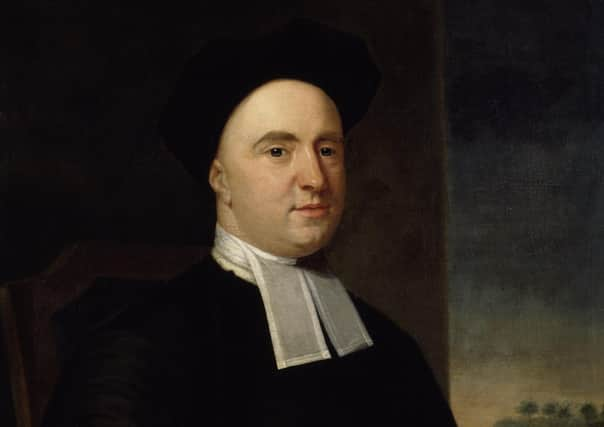Ex-Dean of Derry George Berkeley’s slave-owning background sparks Trinity College Dublin colonial legacy interrogation


The Dublin university said the revelation that the philosopher, for whom its Berkeley library was named in 1967, owned slaves had prompted a debate about Trinity’s connections to the slave trade.
Berkeley served as Dean of Derry and St. Columb’s Cathedral from 1724 and 1733.
Advertisement
Hide AdAdvertisement
Hide AdA major figure in subjectivist philosophy, he is perhaps best known for the thought experiment popularised in the question ‘if a tree falls in a forest and no one is around to hear it, does it make a sound?’ expressed in his 1710 work, ‘A Treatise Concerning the Principles of Human Knowledge.’
It is known that he bought between three and five slaves to work on his Rhode Island plantation, Whitehall, during a brief stay in America between 1728 and 1731 when he was Dean of Derry.
Causeway Coast move to honour American Revolutionary and slave-owner Hercules Mulligan slammed by North West Migrants ForumTrinity confirmed it has appointed Dr. Ciaran O’Neill and Dr Patrick Walsh, from its School of Histories and Humanities, as principal investigators of the colonial legacies project.
Dr. Walsh said: “We are delighted to begin this research exploring Trinity’s multi-faceted connections to empire at home and abroad over the last four centuries and to contribute to an important ongoing public conversation within Trinity and within Irish society about our colonial legacies and how they have shaped our complex present.”
Advertisement
Hide AdAdvertisement
Hide AdTrinity Provost Dr. Patrick Prendergast said: “This project is the outcome of many months of deliberation here in Trinity, sparked off by the important debates that arose from the Black Lives Matter movement. We are conscious that we, as one of the world’s oldest universities, have a particular responsibility to study our past, and to reflect the impact of Trinity as an institution on the lives of people, both positive and negative.”
The examination will look, Trinity’s historical and intellectual connections to empire.